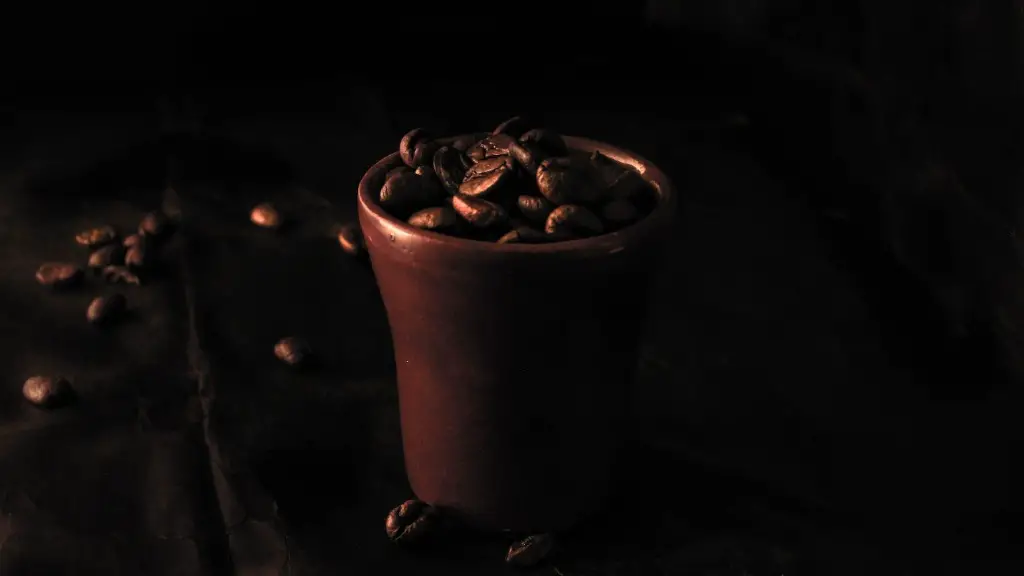Coffee Before Intermittent Fasting
Intermittent fasting has become a popular health trend, with people across the world trying out this type of eating regimen. Proponents of intermittent fasting attest to the many health and well-being benefits, such as weight loss and improved cell and organ functioning. One question people may have about this type of nutrition plan is whether or not it is safe to consume coffee before intermittent fasting. So, can you drink coffee before intermittent fasting?
Firstly, it is important to understand that intermittent fasting is a way of eating that involves cycling between periods of eating and fasting. Generally, this type of fasting does not require an exact food plan, since the focus is on when you are eating. Some types of intermittent fasting can range from eating anything you want one day followed by fasting the next day, or eating more heavily during certain times of the day, while fasting during other times. In terms of coffee, many people wonder if they are able to drink it before the fasting period begins.
According to research, caffeine and coffee can be beneficial for intermittent fasting, as it increases thermogenesis, which subsequently boosts metabolism. It is important to note that this increase in metabolism is only effective with black coffee – not with milk, flavoured coffee, or creamer. Additionally, animal studies have shown that caffeine can help accelerate fat burning and reduce appetite. Therefore, it can be safely incorporated into a fasting plan.
For those looking to consume coffee before an intermittent fasting period, it is advised to consume a single cup of black coffee about 15-30 minutes before beginning the fasting period. It is also important to consider the fact that caffeine consumption can have an effect on people differently. For example, some people may find themselves feeling more energized after a cup of coffee, and some may find the same cup of coffee to disrupt their sleep and cause them to become wired. Therefore, it is important to take into consideration individual sensitivities when considering caffeine consumption before intermittent fasting.
In addition to potential sensitivities, it is important to watch how much caffeine is consumed, as it can lead to certain side effects. Too much caffeine can cause jitters, headaches, nausea, and even an interruption in sleep. Therefore, those who choose to drink coffee before intermittent fasting should drink it in moderation to ensure that they do not experience any of these side effects.
water when intermittent fasting
One important thing to note when it comes to intermittent fasting is that water intake should not be neglected, even if you are fasting. Proper water consumption while intermittent fasting is essential for overall health and wellbeing. Drinking plenty of water can help boost energy levels and reduce the feeling of hunger. In addition, drinking enough water can help keep the digestive system functioning properly and flush toxins from the body.
It is important to keep in mind that it can be advantageous to drink plenty of water before an intermittent fasting period begins as this helps to keep the body hydrated and energized. Additionally, water can be beneficial for reducing hunger pangs and cravings, as well as improving mental clarity. Therefore, it is important to consume plenty of fluids before, during, and after an intermittent fasting period.
other drinks
In addition to coffee and water, there are some other liquids that may be consumed before and during an intermittent fasting period. These include herbal teas such as green, white, and chamomile tea as well as some types of juice such as cranberry, tomato, and vegetable juices. It is important to note that juice is best consumed in moderation, as it can contain high amounts of sugar.
Furthermore, it is important to stay mindful of the caloric content of any liquid consumed before an intermittent fasting period. This is especially true for coffee and tea, as both can contain sugar or sugary syrups in the forms of lattes or espresso drinks. Therefore, choosing lower calorie drinks before beginning a fast can help to keep calorie intake in check. Additionally, one should avoid drinks with artificial sweeteners such as diet sodas.
How Long Does Intermittent fasting Last?
Intermittent fasting lasts for a specific period of time, decided by the individual who is undertaking the fasting. Generally, this period can range anywhere from 8-12 hours, up to 24-48 hours or depending on the type of fasting. It is important to note that a person’s individual needs and goals should be taken into consideration when deciding on the length of the fasting period.
Intermittent fasting can also be adjusted in terms of the timing. For instance, many people like to fast from dinner the night before until breakfast the next day, or from lunch until dinner the same day. Ultimately, whatever time works best for that specific individual is the best time for them to fast.
Eat Before Intermittent fasting
When it comes to intermittent fasting, it is important to make sure that you are adequately prepared before the fasting period begins. This means eating a balanced meal and staying hydrated before the fasting period starts, as this can help to ensure that the body has all the nutrients and energy that it needs. Eating a balanced meal can also help to naturally suppress hunger and cravings during the fasting period.
In addition to eating a balanced meal and drinking enough water, it is also important to get enough rest when undertaking intermittent fasting. Adequate sleep is essential for health and wellbeing, as it helps to rejuvenate and recharge the body and brain. Ensuring that all of these components are taken care of can help to support a healthy and successful intermittent fasting period.
Take Home Message
In conclusion, for those considering drinking coffee before intermittent fasting, it is important to take into consideration individual sensitivities, monitor caffeine intake, and stay hydrated. Additionally, staying mindful of calories is important, as is eating a balanced meal and getting adequate sleep. Ultimately, those considering intermittent fasting can experiment with different methods and adjust their approach as they go to find the best plan for them.



